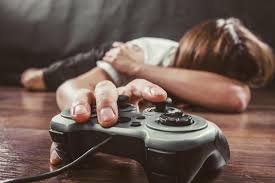The Impact of Gaming: Positive Effects on Mental Health and Well-being
Introduction
Gaming has long been a source of controversy, with debates often focusing on its potential negative effects. However, recent research has shed light on the positive impact of gaming on mental health and well-being. In this article, we’ll explore how gaming can contribute to improved mental wellness and overall quality of life.
Stress Relief and Relaxation
One of the most significant benefits of gaming is its ability to provide stress relief and relaxation. Engaging in immersive gaming experiences allows players to escape from the pressures of daily life and unwind in a virtual world filled with adventure and excitement.
Escapism and Distraction
Gaming offers a form of escapism and distraction, allowing players to temporarily disconnect from stressors and focus their attention on enjoyable and engaging activities. Whether it’s exploring vast open worlds, solving challenging puzzles, or embarking on epic quests, gaming provides a welcome respite from the demands of the real world.
Flow State and Immersion
The state of flow, characterized by deep concentration and intense focus, is often experienced during gaming sessions. Achieving flow state while gaming can promote feelings of fulfillment, accomplishment, and well-being, as players become fully absorbed in the gaming experience and lose track of time.
Cognitive Enhancement and Skill Development
Contrary to popular belief, gaming can also have positive effects on cognitive function and skill development. Many games require players to use critical thinking, problem-solving, and decision-making skills, which can lead to improvements in cognitive abilities over time.
Brain Training and Mental Stimulation
Certain types of games, such as puzzle games and strategy games, provide valuable mental stimulation and exercise for the brain. These games challenge players to think creatively, adapt to new situations, and develop strategies to overcome obstacles, thereby enhancing cognitive function and mental agility.
Hand-eye Coordination and Reflexes
Action-packed games and fast-paced gameplay can also improve hand-eye coordination, reflexes, and fine motor skills. By requiring players to react quickly to stimuli and make split-second decisions, gaming can sharpen reflexes and improve reaction times, which can have benefits beyond the virtual world.
Social Connection and Community Engagement
In addition to its individual benefits, gaming can also facilitate social connection and community engagement, fostering relationships and camaraderie among players from diverse backgrounds and cultures.
Online Multiplayer and Co-op Gameplay
Online multiplayer games and cooperative gameplay experiences provide opportunities for social interaction, teamwork, and collaboration. Whether it’s teaming up with friends to conquer a common foe or joining forces with strangers to achieve a shared objective, gaming can strengthen social bonds and build lasting friendships.
Gaming Communities and Support Networks
Gaming communities and online forums offer platforms for players to connect, share experiences, and seek support from like-minded individuals. These communities provide a sense of belonging and camaraderie, allowing players to share their passion for gaming and support one another through challenges and triumphs.
Emotional Resilience and Coping Mechanisms
Finally, gaming can contribute to emotional resilience and coping mechanisms, helping players develop adaptive strategies for dealing with stress, anxiety, and adversity.
Empowerment and Self-expression
In the virtual world of gaming, players have the freedom to express themselves, experiment with different identities, and explore their emotions in a safe and supportive environment. This sense of empowerment and self-expression can bolster confidence, self-esteem, and emotional well-being.
Problem-solving and Perseverance
Facing challenges and overcoming obstacles in games can teach valuable life lessons about problem-solving, perseverance, and resilience. By learning to navigate setbacks and failures in the virtual world, players can develop coping skills and attitudes that serve them well in the real world.
Conclusion
In conclusion, “The Impact of Gaming: Positive Effects on Mental Health and Well-being” highlights the myriad ways in which gaming can contribute to improved mental wellness and overall quality of life. From stress relief and cognitive enhancement to social connection and emotional resilience, gaming offers a wealth of benefits for players of all ages and backgrounds.
